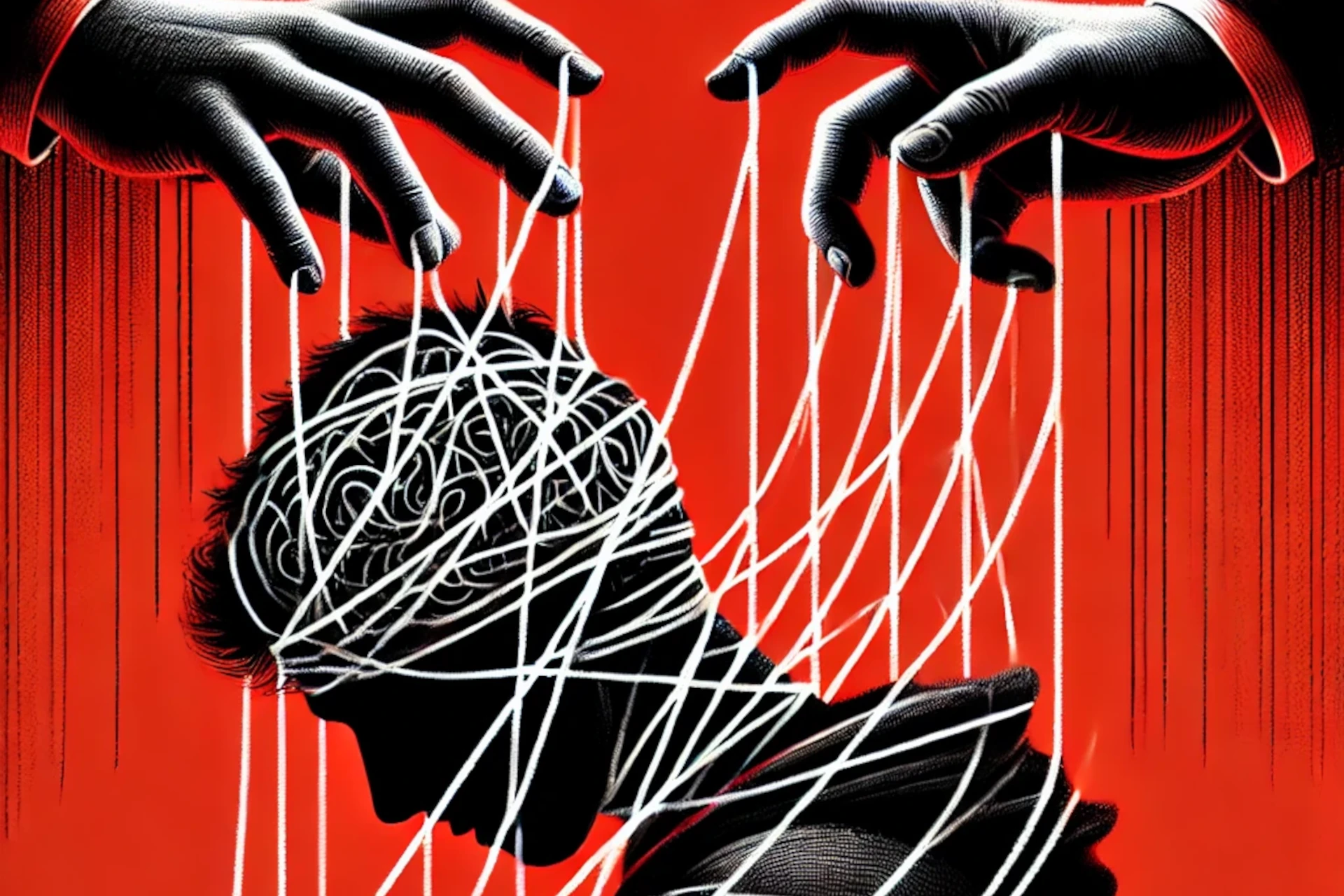Many people have encountered boastful individuals who crave attention. Yet, there is a dark subset of these personalities that goes beyond ordinary self-centeredness. Malignant narcissists, also referred to as dangerous narcissistic personalities, combine extreme entitlement with a degree of cruelty that can leave others deeply scarred.
They display an unnerving ability to manipulate, degrade, and exploit those who cross their path. While narcissism in its milder forms can be irritating, it rarely escalates to the level of destroying relationships.
However, malignant narcissism can reach devastating proportions, affecting families, workplaces, and communities.
What makes a malignant narcissist so dangerous is not just their sense of grandiosity but the complete disregard for the feelings or safety of others. People who have suffered at the hands of narcissistic predators often describe the experience as psychologically disorienting.
Some question their sanity or blame themselves for the turmoil. Meanwhile, the severely disordered narcissists remain unbothered by remorse. Indeed, this alarming absence of empathy turns these individuals into stealth emotional saboteurs, quietly orchestrating chaos in people’s lives while appearing outwardly composed, even charming.
Over the next several sections, we will delve into the core traits of narcissists who lack empathy, differentiating them from more common narcissistic tendencies. We will also answer pivotal questions such as How can you tell if someone is a malignant narcissist and Is it possible to have a healthy relationship with a malignant narcissist?
My aim is to clarify the deeply harmful narcissistic behavior that characterizes malignant forms of this personality disorder. In sharing clinical insights, fictitious yet illustrative case stories, and well-documented research, I hope to offer both validation and guidance for those seeking to break free.
Understanding the malignant core
Before diving deeper, we need to clarify the difference between a narcissist and a malignant narcissist.
Classic narcissism involves excessive self-involvement and constant need for admiration, yet may not always lead to the intentional emotional harm observed in abusive narcissists. Malignant narcissism includes antisocial traits: narcissists with antisocial traits often relish the downfall of others. They manipulate boundaries, exploit vulnerabilities, and blame their victims.
Are malignant narcissists aware of their behavior? While research varies, many experts believe they are shockingly cognizant of their manipulative tactics but remain indifferent to the damage they inflict.
Can a malignant narcissist feel empathy or remorse? In my professional experience, the short answer is typically no. Empathy might appear momentarily in contrived scenarios, yet it is usually a facade. One patient in my clinic shared, “I kept waiting for my ex to show genuine regret, but it felt like he was reading from a script.” This phenomenon underscores the cold calculation of high-conflict narcissists. They might pretend to empathize if it furthers their agenda, but genuine concern rarely surfaces.
From a clinical standpoint, psychopathic narcissists represent a severe fusion of self-centeredness and moral deficit. Dr. Helen Ray, a renowned psychologist, once stated, “A malignant narcissist is a perfect storm of selfishness and cruelty.” This quote resonates strongly when observing how they communicate.
Subtle insults, passive-aggressive digs, and blatant humiliations are strategies they employ to keep targets off balance. Consequently, these malignant types thrive on emotional turbulence, striving to keep loved ones in a constant state of uncertainty.
What is the difference between a narcissist and a malignant narcissist? The latter’s hostility and destructive impulses go beyond vanity or arrogance. They relish conflict, can be dangerously vindictive, and view other people as either threats or tools.
People frequently ask, Do malignant narcissists get worse over time? Evidence suggests that manipulative narcissists often intensify their behavior when they are reinforced by a lack of consequences. Early intervention and firm boundaries can sometimes mitigate their toxic influence, but the potential for escalation remains high if these behaviors remain unchecked.
Recognizing the red flags
Early detection of cruel narcissistic individuals is essential for emotional self-protection. How can you tell if someone is a malignant narcissist? Look for a pattern of exploitation, pathological lying, and shallow affect.
They might be excessively charming at first but gradually reveal manipulative tendencies. Harmful narcissistic behavior often surfaces during moments of conflict or stress, when a malignant narcissist will resort to intimidation, gaslighting, or public humiliation. These tactics devastate unsuspecting victims who believe they can resolve disputes through kindness or reason.
For instance, I once treated a young woman who tearfully described her partner as the epitome of a toxic narcissist. She said, “He was so supportive initially, but that was just bait. Suddenly, my words were twisted, my self-esteem eroded, and I was left doubting my own reality.”
Such experiences highlight the cunning skill set of narcissists who lack empathy. They have an almost supernatural knack for sensing weaknesses, then weaponizing those vulnerabilities. Reflect for a moment: Do you know someone who uses your fears against you?
Are malignant narcissists aware of their behavior? In many cases, yes. Like narcissistic predators, they watch and calculate. They gather data from your emotional expressions to craft the perfect insult or sabotage. Even if they pretend ignorance, their manipulations often exhibit a deliberate pattern. Over time, this pattern becomes predictably malicious.
Think about it: if someone repeatedly benefits from causing others distress, is ignorance truly plausible? Victims of dangerous narcissistic personalities frequently observe that the malignant narcissist seems to derive pleasure from the chaos they cause.
Below is a simple table to illustrate some red flags versus healthy behavior:
| Red flag behavior | Healthy behavior |
|---|---|
| Consistent manipulation, gaslighting, and blame-shifting | Open communication and accountability for actions |
| Deriving pleasure from the suffering of others | Demonstrating genuine empathy and concern |
What are the signs of a relationship with a malignant narcissist? Chronic stress, self-doubt, and feelings of entrapment often top the list. These signals should never be ignored.
Strategies of manipulation and control
How does a malignant narcissist manipulate others? Tactics like gaslighting, love-bombing, and triangulation are commonly reported in therapy sessions.
- Gaslighting involves twisting a person’s perception of reality to the point that they question their own memory;
- Love-bombing is the excessive attention a malignant narcissist gives initially, only to withhold it later;
- Triangulation pulls a third party into the relationship to create jealousy or rivalry.
Another method is incessant boundary violation. A malignant narcissist sees boundaries as mere hurdles to leap over, not as respected limits. For instance, if you request space to calm a conflict, they may persistently message or call, ignoring your need for peace.
In my clinic, a client once shared, “I set a rule that he should text me only once a day during our break. Instead, he bombarded me with calls, accusing me of being unfair.” This scenario highlights the typical approach of high-conflict narcissists.
Additionally, abusive narcissists exploit the silent treatment to punish those who refuse to comply with their demands. This emotional withdrawal can be more damaging than overt aggression because it leaves the victim feeling isolated and desperate for reconciliation.
In fact, Dr. Melissa Kane, a family therapist, observed, “The silent treatment can erode a victim’s self-esteem faster than yelling because it deprives them of any closure or sense of resolution.” This underscores how psychopathic narcissists weaponize silence just as effectively as words.
Below is a brief scheme showing the cycle of manipulation in relationships with dangerous narcissistic personalities:
- Idealization: Intense charm, love-bombing, and praise.
- Devaluation: Subtle criticisms escalate into frequent put-downs.
- Discarding: Emotional detachment or abrupt abandonment.
- Hoovering: Sudden return with apologies or grand gestures to suck the victim back in.
Is it possible to have a healthy relationship with a malignant narcissist? Regrettably, most mental health experts say no, because consistent empathy and mutual respect are absent from their psychological framework.
The impact on partners and children
When malicious narcissism invades a family, the consequences are profound. How do malignant narcissists affect their children or partners? Firstly, children often learn to walk on eggshells, perpetually seeking approval from a parent who thrives on control. Partners might feel trapped, especially if financial or emotional resources are entwined with the malignant narcissist’s.
In my clinical observation, such a home environment leads to lingering anxiety, chronic guilt, and diminished self-worth. Emotional wounds can persist into adulthood, influencing relationship choices and self-perception.
One client, who believed her father was a cruel narcissistic individual, described how he would isolate family members. “He insisted on separate dinners for each child so he could interrogate us one by one,” she recalled.
Narcissists who lack empathy manipulate even trivial details to assert dominance, causing children to internalize the idea that they deserve harsh criticism. Sadly, many of these children either become extremely submissive or rebel in dangerous ways. Reflect on this question: Do you suspect someone is deliberately creating emotional chaos in your home?
Partners and spouses of narcissistic predators often experience a roller-coaster of hope and despair. Do malignant narcissists get worse over time? Research and anecdotal evidence suggest that if left unchecked, these behaviors may escalate.
The malignant narcissist’s need for control and self-aggrandizement grows, especially if they face minimal opposition. Over the years, I’ve seen individuals remain in these damaging relationships, hoping their partner will change.
Unfortunately, the manipulative cycle remains consistent. One might break free temporarily, only to be “hoovered” back in by false promises.
Below is another short table highlighting the impact on partners versus children:
| Impact on partners | Impact on children |
|---|---|
| Erosion of self-esteem and constant emotional turmoil | Fear-based compliance and distorted self-image |
| Cycles of hope and despair through manipulative tactics | Learned helplessness and difficulty forming boundaries |
Can therapy help someone with malignant narcissism? While therapy can bring insight, changing core traits is notoriously difficult because genuine remorse and empathy rarely develop naturally in a malignant narcissist.
Professional insights, research, and possible interventions
Are malignant narcissists aware of their behavior? Many experts argue they are painfully aware, especially when confronted with the outcomes of their actions. Studies referenced in a 2022 Reddit discussion and on Quora highlight that toxic narcissists often rationalize their actions, believing others deserve the mistreatment.
Additionally, a 2021 Wikipedia entry suggests that up to 6% of the global population exhibits traits related to malignant narcissism, though exact data vary by source. These statistics underscore the prevalence of this phenomenon, making awareness crucial for prevention and intervention.
In a case from my therapy practice, I worked with a 32-year-old man who recognized many traits of severely disordered narcissists in himself. His admission was both enlightening and alarming: “I know I push people’s buttons. I just don’t feel anything about it.”
This statement reveals the emotional void that characterizes narcissists with antisocial traits. He entered therapy after losing his job due to a high-conflict confrontation with his supervisor. Even then, his main motivation was to improve his manipulation skills rather than develop genuine empathy or remorse.
Yet, what should I do if I suspect someone in my life is a malignant narcissist? Experts recommend establishing firm boundaries and seeking professional help if the relationship becomes damaging. Family intervention programs sometimes offer structure that malignant narcissists cannot easily dismiss. However, the success of these efforts depends on the individual’s willingness to engage in genuine introspection.
Do malignant narcissists get worse over time? Without consistent feedback or consequences, yes, they frequently escalate. Support systems such as therapy, legal measures, and strict no-contact strategies can provide some protection.
Can therapy help someone with malignant narcissism? Treatment is often challenging, but it is not entirely hopeless for those rare individuals motivated to change. Specialized therapies, such as psychodynamic or cognitive-behavioral methods, may provide insight into their destructive patterns.
Nonetheless, many abusive narcissists either never enter therapy or drop out prematurely. As a result, mental health professionals emphasize prevention and education. By learning to identify manipulative narcissists, victims can safeguard their emotional well-being early on. Ultimately, the best defense is knowledge, self-awareness, and decisive action.
Final words
When facing the reality of dangerous narcissistic personalities, it’s critical to remember you’re not alone. What makes a malignant narcissist so dangerous is their calculated misuse of power and complete disregard for others’ well-being.
If you’re looking for a conclusive answer to Is it possible to have a healthy relationship with a malignant narcissist, the unfortunate truth is that such relationships are generally imbalanced and fraught with pain. Therefore, vigilance, self-care, and professional guidance often become essential for those entangled in these relationships.
Throughout this article, we explored narcissists who lack empathy, the red flags of abusive narcissists, and how they manipulate those closest to them. We have also discussed how malignant narcissists affect their children or partners and the roles therapy can play.
Are malignant narcissists aware of their behavior? In many instances, yes, which makes their brand of manipulation especially cruel. Consequently, understanding their mentality can serve as a shield against further harm. Always remember you possess the power to set boundaries, seek support, and rebuild your emotional health.
What should I do if I suspect someone in my life is a malignant narcissist? Educate yourself, consult mental health professionals, and lean on supportive friends or family members. Above all, do not allow guilt or confusion to keep you trapped in a cycle of manipulation.
Break free by recognizing the patterns and taking steps to protect your emotional and even physical well-being. While every human deserves compassion, malignant narcissists often leave little room for genuine connection. In the end, knowledge, self-worth, and resilience are your strongest allies.
References
[1] Wikipedia. (2023). Narcissistic Personality Disorder. Retrieved from https://www.wikipedia.org/ (Accessed: 2023)
[2] Reddit Forum. (2022). Discussion on Malignant Narcissism. Retrieved from https://www.reddit.com/ (Accessed: 2022)
[3] Quora. (2021). “Can Malignant Narcissists Change?”. Retrieved from https://www.quora.com/ (Accessed: 2021)
[4] Kane, M. (2020). Family Therapy and Narcissistic Abuse. Journal of Family Psychology, 2(5), 77-89.
[5] Ray, H. (2019). Clinical Perspectives on Malignant Narcissism. Journal of Abnormal Psychology, 34(3), 201-210.











